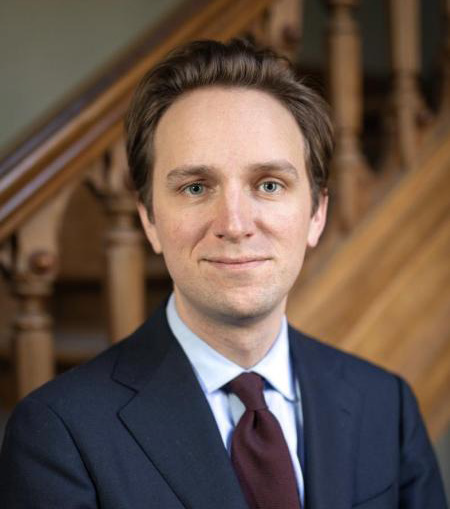
On Thursday, April 25, 2024, students, faculty, staff and members of the community came together to attend “The German Polycrisis”, an event sponsored by the Levitt Center. The afternoon lecture featured Henry Platt Bristol Professor of International Relations Alan Cafruny alongside Professor of Economic History at Cornell University, Nicholas Mulder. The discussion was moderated by Visiting Assistant Professor of German Michael Lipkin.
At the start of the talk, Mulder began by breaking down in what ways the polycrisis has affected the German state For one, Mulder pointed out the German economy’s recent struggles following Russia’s invasion of Ukraine. He uses wages and purchasing power and quantitative evidence: “For 9 years, there has not been an increase in purchasing power. With wages consistently kept low and the 2022 energy spike, it was going to inevitably lead to inflation.” From a political standpoint, Mulder highlights the impact former Chancellor of Germany Angela Merkel had on domestic politics: “Initally, Merkel comes across as a tame person, but she was known to be ruthless with politicians. She would surround herself with people who were powerful but who could not challenge her due to previous scandals. Upon her departure, she has created an important vacuum of power.” Beyond Merkel’s influence, Mulder sees “consensus politics,” which he describes as “slow moving”, as a problem to address. Indeed, the German Supreme Court, for instance, was based upon a model that effectively limited how proactive domestic government could be. In this, Mulder sees a hurdle which has been used by German Far Right groups to gain in popularity. In consequence, German politics have witnessed progressive splintering and tension. Finally, taking into consideration geopolitics, Germany’s growing friction with China on the global market is also a potential sign of worry. Mulder states: “China has been good at taking over markets that Germany was once in control, such as electric vehicles.”
Cafruny prefaced his speech by arguing that “secular Europe is quickly fading away, and the situation we are in today is frighteningly similar to that of the Weimar Republic.” Discussing German economics, Cafruny used the term “sanction boomerang” to discuss the adverse efffects German sanctions on Russia have had domestically. Despite trying to hurt Russia, it stood strong and overcame these economic obstacles. Focusing on Russia’s resilience, Cafruny summed up his argument by stating “Both Biden and McCain have vowed to destroy Russia if it went against world peace, but the Kremlin has remained strong. Russia always seems to be loosing the war; until they’re not.”
In the end, both professors took into account German’s domestic and international concerns from opposing perspectives, providing audiences with valuable insight.

























